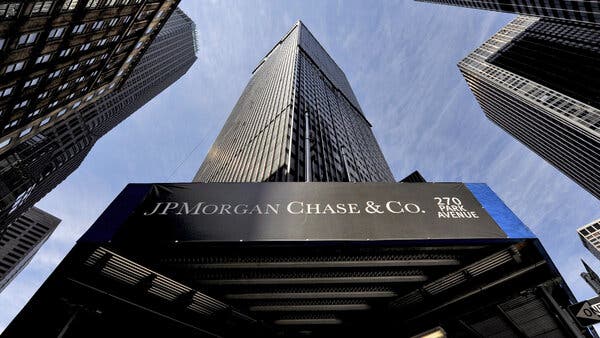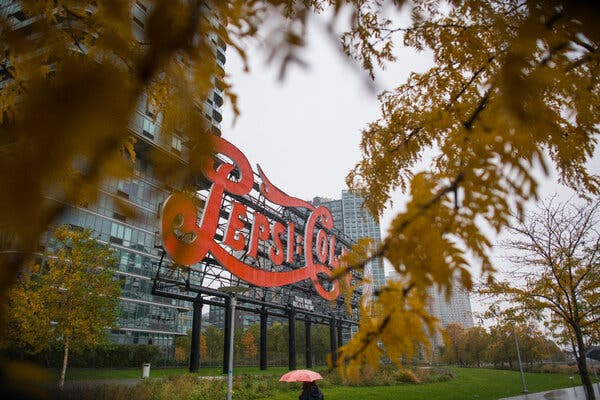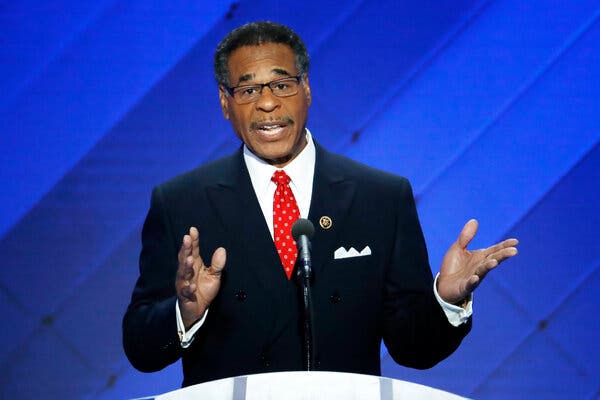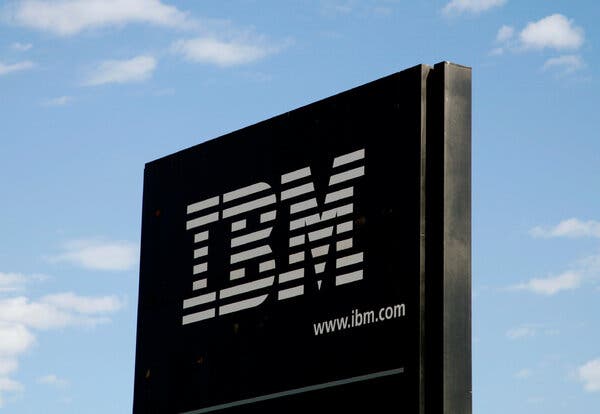Consumer spending fell for the third-consecutive month in December, confirming what many economists had predicted would be a disappointing holiday season for many retailers.
Retail sales fell 0.7 percent last month, the Commerce Department said on Friday, as the economic recovery showed signs of stalling, stimulus money ran dry and virus cases surged across the country, prompting shoppers to avoid stores.
The decline also likely reflects how retailers’ strategies of offering holiday deals early this fall spread out the holiday shopping season across months, and may have dampened sales closer to Christmas.
The drop was widespread across many categories, including electronics, building supplies and food and beverage stores, which had been areas of strong spending last spring and summer. Spending at restaurants in December was also down amid a rise in new cases and new closures.
The Commerce Department also revised its November sales data, showing a decline of 1.4 percent, larger than the 1.1 percent drop it had previously reported.
The three months of weak consumer spending, which comprises 70 percent of the U.S. economy, adds new urgency to the $1.9 trillion economic rescue package that the incoming Biden administration proposed this week, which increase direct payments to individuals by $1,400.

Optimism is taking hold among the country’s largest banks. With vaccines beginning to be administered to the most vulnerable Americans and a new round of economic stimulus on the way, banks on Friday revealed that they had begun to pare back the enormous reserves they had socked away in case of an economic disaster.
“Thank God for the vaccine, folks” JPmorgan’s chief executive, Jamie Dimon, said on a call with reporters on Friday.
JPMorgan Chase, the largest U.S. bank, ended 2020 on a strong note, releasing $2.9 billion from an emergency pool of money, which helped push its profit 42 percent higher in the fourth quarter.
Citigroup and Wells Fargo also reported loosening their rainy-day funds.
Citigroup said on Friday that it had released nearly $1.5 billion, but it was not enough to raise its quarterly earnings above what it earned in the same period in 2019. The bank reported a profit of $4.6 billion on revenue of $16.5 billion. Both its revenue and its earnings were lower than they were a year earlier.
And Wells Fargo released $757 million from its reserve pool, but it said the change was driven by the sale of its student loan business rather than any reassessment of its economic outlook. The bank earned $3 billion in the fourth quarter, just slightly more than it did in the same quarter in 2019, even though its revenue fell to nearly $18 billion from $19.8 billion.
JPMorgan revealed its reserve release in a report on its fourth-quarter financial results on Friday, when it reported earnings of just over $12 billion, although the increase, from the same period last year, was attributed mostly to the newly freed funds. The bank’s revenue was 3 percent higher, at $30 billion, compared with the same quarter a year earlier.
Regular recalculations of how much money the bank would need in the event of a disaster had led to the release, Mr. Dimon said in a statement accompanying the bank’s results, but he added that there was still plenty more saved up in case a downturn occurred.
“While positive vaccine and stimulus developments contributed to these reserve releases this quarter, our credit reserves of over $30 billion continue to reflect significant near-term economic uncertainty and will allow us to withstand an economic environment far worse than the current base forecasts by most economists,” he said.
The results showed that JPMorgan’s retail customers have been buying houses and cars. Mortgages and auto loans rose 20 percent compared with a year earlier. The bank’s profit from stock trading jumped 32 percent, while earnings from trading in bonds, currencies, commodities and other products rose 15 percent from the same period a year earlier.
Citi’s earnings were hit by reduced activity by its credit card users around the world. Deposits grew in its global bank by 19 percent, but the amount it earned from card usage declined, sending overall revenue 14 percent lower. On Wall Street, Citi bested its performance a year earlier. Stock trading earnings rose 57 percent, while earnings from trading in bonds and other products increased 7 percent.
Wells Fargo’s chief executive, Charles W. Scharf, said the bank’s results, which showed significant expenses that cut into its ability to earn profits, reflected its efforts to move on from its past abusive practices. The bank has had to revamp how it monitors its operations to identify illegal or harmful activities, and has plowed significant sums into the overhaul.
“We are making progress,” Mr. Scharf said in a statement accompanying the financial results. He noted that the improved economic outlook offered an additional source of hope.
“With a more consistent, broad-based recovery, and as we continue to press forward with our agenda, we expect you will see that this franchise is capable of much more,” Mr. Scharf said.

PepsiCo announced on Thursday that it was suspending all donations from its corporate political action committee, adding to the list of dozens of companies that have come out with some sort of halt on political giving since last week’s violence at the Capitol.
“The peaceful transfer of power is a keystone of the American democratic process, and we categorically denounce the violence last week that attempted to disrupt this process,” a representative said. “In light of these events, we are suspending all political contributions while conducting a full review to ensure they align with our company’s values and our shared vision going forward.”
Pepsi’s PAC spent $140,000 this election cycle, according to the Center for Responsive Politics.
In pausing all donations, Pepsi is not going as far as companies like Walmart and Marriott, which halted donations specifically to the 147 Republicans in Congress who objected to certifying the presidential election result. It joins companies like rival Coca-Cola, along with the energy giant BP and the consulting firm EY, formerly Ernst & Young, in halting donations across the board.
The brokerage firm Charles Schwab said this week that it was shutting down its PAC, citing the divisive political environment.
“I’ve never seen the corporate PAC world react to something this uniformly and strongly,” said Kenneth Gross, a partner at the law firm Skadden who focuses on campaign finance law.
“I think there’s a sense of, ‘Let’s not overreact — but we need to do something,’” he said.

A lawmaker in Washington is asking big banks and other financial services companies to stop processing financial transactions for people and organizations that participated in last week’s attack on the United States Capitol.
Representative Emanuel Cleaver, a Missouri Democrat who serves on the House Financial Services Committee and is chairman of its subcommittee on national security, announced on Thursday that he had written to a trade group, the Electronic Transaction Association, to request the freeze. He also asked the group, which represents companies like Visa, JPMorgan Chase and Square, to immediately stop doing business with anyone who based fund-raising campaigns off the Jan. 6 attack.
“Far-right, white-nationalist and associated domestic terror organizations pose an imminent threat to the national security of the United States and our financial system,” Mr. Cleaver wrote in a letter on Tuesday to the group’s leaders.
“Every effort should be made to identify all terror suspects involved in the attack, prevent the facilitation of further criminal activity, and to disrupt their illicit networks.”
Mr. Cleaver said that several groups, including the Proud Boys, the Boogaloo Bois and the Sons of Liberty, which had been documented as participants in the attack, had already been cut off from many mainstream fund-raising platforms, but were still using “intermediary organizations with questionable terms of service” that might in turn be doing banking and payments business with mainstream companies. He asked that the association’s members assess their “formal and informal relationships” with the groups and work to cut them off He also asked that the group respond to his request by Friday.
“We received the chairman’s letter and are preparing our response on how the payments industry is addressing illegal activity that occurred last week,” Scott Talbott, a lobbyist for the group, said in an email on Thursday.

IBM announced a series of recommendations for government policy changes on Friday in response to last week’s riot at the Capitol. They include clearer guidance around presidential transitions, stricter rules on financial disclosures for office holders and more.
The tech giant’s advocacy is noteworthy because these issues aren’t related directly to its business and they’re not backed by a company political action committee. IBM has forbidden corporate political donations for more than a century.
“What companies should be thinking about is policy reforms, not PAC checks,” Christopher Padilla, IBM’s vice president of government and regulatory affairs, wrote on the company’s policy blog. “Rather than just suspending PAC contributions as a signal-sending exercise, what makes more sense for us, since we don’t do political contributions, is to try to reform government in a way that will prevent some of this stuff from happening in the future,” he told the DealBook newsletter.
Despite eschewing direct donations, IBM is an active lobbyist and hasn’t shied from hiring people with political ties, including most recently Gary Cohn, President Trump’s former economic adviser, as vice chairman. “IBM looks for people who bring experience and qualifications and doesn’t really look at what their political background is,” Mr. Padilla said.
Employees and shareholders expect companies to be “responsible players,” Mr. Padilla said, “and that’s what we’re trying to do.” IBM employees had pressed the company to speak out following the violence in the Capitol, much like they did after George Floyd’s killing last year. Following Mr. Floyd’s death, the company called for changes to police policy and said it would get out of the facial recognition business.
Britain’s economy declined in November, the earliest signal that the country might be heading for its second round of contraction within months — a double-dip recession — because of the severity of the second wave of the pandemic and the restrictions that have been imposed on businesses and the population.
Gross domestic product dropped 2.6 percent in November, when a second lockdown was imposed across England, after six consecutive months of economic growth, according to the Office for National Statistics.
That said, the impact of this second lockdown was much less economically severe than the closures last spring, when the economy fell by more than 18 percent. The difference this time was, in part, because the restrictions were looser and more businesses had adapted: schools remained open, more people could go to their workplaces and many retail and hospitality businesses had added delivery and pickup services. The construction and manufacturing sectors of the economy were the only ones that grew in November, but the overall decline was smaller than most economists had forecast.
Still, the economic recovery that many thought would come once vaccinations began has been postponed, at least until the spring. Much of Britain is under a third lockdown (longer and stricter than the second), as a more contagious variant of the virus has strained the health care system, and economists are forecasting the economy to contract in the first quarter of 2021.
Trade disruptions created by Britain’s exit from the European Union’s single market and customs union, including delays, lost business, and the halting of some services, is also expected to weigh on the economy in the first few months of the year.
“We should expect the economy to get worse before it gets better,” Rishi Sunak, the chancellor of the Exchequer, said in Parliament on Monday. The next day, Andrew Bailey, the governor of the central bank, said the economy was facing its “darkest hour” and that it was in “a very difficult period.”

Disneyland, which has been closed for 10 months because of California’s strict approach to coronavirus safety, alerted annual passholders that it was ending the popular program, which it started offering to hard-core customers in the 1980s.
The Walt Disney Company said it would begin issuing prorated refunds in the coming days. Annual passes to Disneyland were most recently $419 to $1,449, depending on access and perks.
Disney declined to say how many people were enrolled. The Orange County Register estimated in 2018 that Disneyland sold “hundreds of thousands” annual passes a year.
In part, the program is ending because Disney expects pent-up demand — from passholders and day guests alike — to far outstrip capacity when the attractions eventually reopen. Walt Disney World in Florida returned in July and has been running at 35 percent capacity since the fall.
In a letter to passholders, Ken Potrock, president of the Disneyland Resort, cited uncertainty about the duration of the pandemic and “expected restrictions around the reopening of our theme parks.”
“We plan to use this time while we remain closed to develop new membership offerings,” he said. He gave no update on when Disneyland might reopen.
Disneyland typically attracts more than 18 million visitors per year; an adjacent Disney theme park in Anaheim, Calif., draws 10 million. Total revenue in 2019 stood at roughly $3.8 billion, according to analysts.
-
Stocks drifted lower on Friday, as the initial enthusiasm about President-elect Joseph R. Biden Jr.’s $1.9 trillion spending plan to address the impact of the pandemic gave way to some second thoughts about the cost of all that borrowing.
-
Still, as has been the case all week, the moves were relatively small. The S&P 500 fell less than half a percent in early trading.
-
Mr. Biden said Thursday night that his plan would address the “real pain overwhelming the real economy,” with money to quicken the rollout of the coronavirus vaccine, help for state and local governments to address budget shortfalls, more generous jobless benefits and direct payments of $1,400 to individuals.
-
As virus cases keep climbing in many parts of the world, anticipation of Mr. Biden’s spending plans have helped keep stock benchmarks in the United States close to record levels.
-
Those gains have come even as fresh data shows the economic damage being done by the pandemic. On Thursday, it was that more than one million people in the United States filed for unemployment benefits last week. On Friday, the Commerce Department said retail sales fell for a third-straight month in December, despite the holiday shopping season.
-
But investors are also looking closely at the enormous amount of borrowing that will be necessary to finance Mr. Biden’s proposal. Already, Treasury bonds have sunk in value, and their yields risen. As yields inch up, borrowing costs will rise. That has also raised concerns about tax increases to help underwrite Mr. Biden’s proposal.
-
The benchmark Stoxx Europe 600 was 0.6 percent lower on Friday, and the FTSE 100 in Britain lost 0.7 percent.
-
Oil prices stumbled, with Brent crude, the international benchmark, falling 1.6 percent, and West Texas Intermediate down 1.4 percent.

The Treasury Department said it would allow Fannie Mae and Freddie Mac, the two government-controlled mortgage finance firms, to retain more of their profits to guard against future risks in the housing market.
The plan is part of an effort to enable Fannie and Freddie to leave government control — although neither the Treasury nor the Federal Housing Finance Agency, which regulates both firms, expect that to happen anytime soon.
Both firms have been in a government conservatorship since September 2008, when Treasury officials in the Bush administration had to step in with a $187 billion bailout in the early days of the financial crisis. Today, they effectively guarantee roughly half of all mortgages in the United States against default, which helps keep a lid on the interest rate for a traditional 30-year mortgage.
The Treasury and the F.H.F.A. said in a joint statement that the conservatorship was not meant to be indefinite and that federal officials had developed a “blueprint” for privatizing the firms. That blueprint foresees Fannie and Freddie both being able to sell stock to raise capital at some later date.
But the conservatorship, which has already spanned parts of three presidencies, will now be overseen by the Biden administration. That means a new Treasury secretary, and it may soon mean a new F.H.F.A. director.
Mark Calabria, who took over the agency in 2019, has long favored a plan to end the conservatorship. But a case pending before the Supreme Court could allow the president to replace him without waiting for Mr. Calabria’s five-year term to expire.






